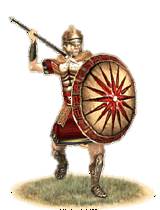
This suggests that Alexander the Great was poisoned, but by what? One explanation is a lethal dose of a toxic substance that pervaded the corpse and slowed the rate of decomposition. So what did kill Alexander? According to the historical accounts, Alexander’s body failed to show any signs of decay for six days after death, even though it was kept in a hot, sultry place.

The main effect of alcohol poisoning is continual vomiting, but not once do any of the historical sources mention vomiting or even nausea as one of Alexander’s symptoms. There is nothing in any of the historical accounts to suggest such outbreak in Babylon at the time Alexander died. Typhoid is transmitted by food or water contaminated by bacteria which causes epidemics and not just single, individual cases. Malaria is carried by mosquitoes that live in jungle and tropical locations, but not in desert regions such as central Iraq where Alexander died. The four most popular theories concerning his death are: Malaria, typhoid, alcohol poisoning, or being intentionally poisoned by a rival. Ultimately, his breathing became difficult and he died.Īlexander the Great on his deathbed. In the final stages of the condition he could not talk, although he could still move his head and arms. He experienced an intense thirst, fever and delirium, and throughout the night he experienced convulsions and hallucinations, followed by periods of calm. He then collapsed and suffered acute and excruciating agony wherever he was touched. His initial systems were agitation, tremors, stiffness in the neck, and sharp pain in the area of the stomach. He was taken to his bedchamber where, after days of agony, high fever, convulsions and delirium, he fell into a coma and died. But around mid-evening, he was seized with intense pain and collapsed. What is known from historical records is that Alexander was holding a memorial feast to honour the death of a close personal friend. However, before completing his plans to invade Arabia, Alexander the Great died of a mysterious death, following 12 days of suffering. He is credited with founding some 20 cities that bore his name, including Alexandria in ancient Egypt, and spread Greece's culture east.


He conquered the whole of the Persian Empire but being an ambitious warrior, seeking to reach the 'ends of the world,' he invaded India in 326 BC but later turned back. Alexander is considered one of history's most successful commanders.

He became king of Macedon, a state in northern ancient Greece, and by the age of 30 had created one of the largest empires of the ancient world, stretching from the Ionian Sea to the Himalayas. However, new research may have finally solved the 2,000-year-old mystery.Īlexander III of Macedon, also known as Alexander the Great, was born in Pella in 356 BC and was mentored by Aristotle until the age of 16. The question of what, or who, killed the Macedonian king has never been answered successfully. In June 323 BC, Alexander the Great died in Babylon aged 32, having conquered an empire stretching from modern Albania to eastern Pakistan.


 0 kommentar(er)
0 kommentar(er)
